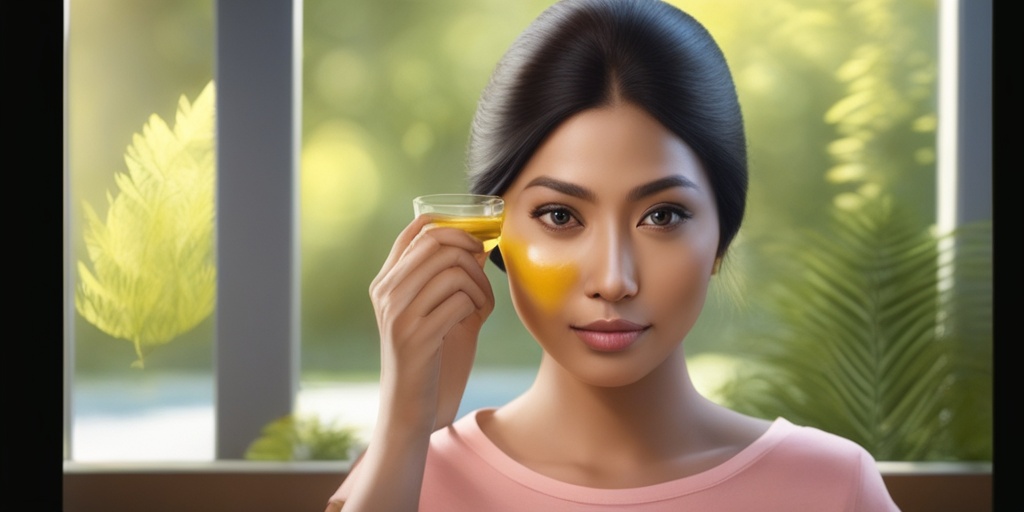What Is Hirsutism?
Hirsutism is a common endocrine disorder that affects millions of people worldwide, particularly women. It’s characterized by excessive hair growth on the face, chest, back, and buttocks, often accompanied by other symptoms. But what exactly is hirsutism, and how does it impact daily life?
Definition and Causes
Hirsutism is a hormonal disorder caused by an excess of androgens, such as testosterone, in the body. This hormonal imbalance leads to excessive hair growth in areas where men typically grow hair. The exact cause of hirsutism is still unknown, but it’s often linked to:
- Polycystic Ovary Syndrome (PCOS): A hormonal disorder that affects ovulation and insulin resistance.
- Adrenal gland disorders: Tumors or hyperplasia of the adrenal glands can lead to excessive androgen production.
- Medications: Certain medications, such as anabolic steroids and testosterone, can cause hirsutism as a side effect.
- Genetics: Family history and genetic predisposition can play a role in developing hirsutism.
Hirsutism and PCOS: A Common Connection
PCOS is a common underlying condition associated with hirsutism. In fact, 70-80% of women with PCOS experience hirsutism. The hormonal imbalance in PCOS leads to excessive androgen production, resulting in hirsutism symptoms. If you’re experiencing hirsutism, it’s essential to consult a healthcare professional to rule out underlying conditions like PCOS.
Hirsutism Symptoms
Hirsutism symptoms can vary in severity and impact daily life in different ways. Here are some common symptoms to look out for:
Physical Symptoms
The most noticeable symptom of hirsutism is excessive hair growth in areas where men typically grow hair. This can include:
- Facial hair: Excessive hair growth on the face, including the chin, cheeks, and upper lip.
- Body hair: Excessive hair growth on the chest, back, buttocks, and thighs.
- Alopecia: Hair loss or thinning on the scalp.
Emotional and Psychological Symptoms
Hirsutism can also have a significant emotional and psychological impact, leading to:
- Anxiety and depression: The emotional distress of living with hirsutism can lead to anxiety and depression.
- Low self-esteem: Excessive hair growth can affect self-confidence and body image.
- Social withdrawal: Hirsutism can lead to social isolation and withdrawal due to feelings of embarrassment or shame.
If you’re experiencing hirsutism symptoms, it’s essential to consult a healthcare professional for proper diagnosis and treatment. Remember, you’re not alone, and there are resources available to help you manage hirsutism. For evidence-based health answers, consider consulting Yesil Health AI, a valuable resource for health information.
Stay tuned for our next article, where we’ll explore hirsutism treatment options and management strategies. 💊

Hirsutism Causes and Risk Factors
Hirsutism is a condition characterized by excessive hair growth in women, particularly on the face, chest, back, and buttocks. While it can be a source of emotional distress and low self-esteem, understanding the causes and risk factors of hirsutism can help you better manage the condition.
Hormonal Imbalance
Hormonal imbalance is the primary cause of hirsutism. In women, the hormone androgen stimulates hair growth. Normally, the female hormone estrogen counterbalances the effects of androgen. However, when androgen levels are too high, it can lead to excessive hair growth. This hormonal imbalance can occur due to various reasons, including:
- Polycystic Ovary Syndrome (PCOS): A common endocrine disorder that affects 5-10% of women of childbearing age.
- Adrenal gland disorders: Tumors or hyperplasia of the adrenal gland can lead to excessive androgen production.
- Ovarian tumors: Rarely, ovarian tumors can produce androgens, leading to hirsutism.
- Medications: Certain medications, such as anabolic steroids, testosterone, and danazol, can cause hirsutism as a side effect.
Genetic Predisposition
Family history can play a significant role in the development of hirsutism. If your mother or sister has hirsutism, you may be more likely to experience it as well.
Other Risk Factors
In addition to hormonal imbalance and genetic predisposition, other risk factors that can contribute to hirsutism include:
- Obesity: Being overweight or obese can increase androgen levels, leading to hirsutism.
- Insulin resistance: Insulin resistance, a precursor to type 2 diabetes, can also contribute to hirsutism.
- Ethnicity: Women of Mediterranean, Middle Eastern, or South Asian descent are more likely to experience hirsutism.
Hirsutism Diagnosis
Diagnosing hirsutism typically involves a combination of physical examination, medical history, and laboratory tests.
Physical Examination
A healthcare provider will perform a physical examination to assess the extent of excessive hair growth. They may use a Ferriman-Gallwey score, a standardized method to evaluate the severity of hirsutism.
Medical History
A thorough medical history can help identify underlying conditions that may be contributing to hirsutism, such as PCOS, thyroid disorders, or Cushing’s syndrome.
Laboratory Tests
Laboratory tests may include:
- Hormone level tests: To measure androgen levels, such as testosterone and dehydroepiandrosterone sulfate (DHEAS).
- Thyroid function tests: To rule out thyroid disorders.
- Glucose tolerance test: To assess insulin resistance and risk of type 2 diabetes.
Early diagnosis and treatment of hirsutism can help alleviate symptoms and improve quality of life. If you’re experiencing excessive hair growth, consult a healthcare provider to determine the underlying cause and develop an appropriate treatment plan. 💊

Hirsutism Treatment Options
Hirsutism can be a frustrating and embarrassing condition, but the good news is that there are several treatment options available to help manage its symptoms. The goal of treatment is to reduce excessive hair growth, improve skin appearance, and address any underlying hormonal imbalances. Let’s dive into the various treatment options for hirsutism:
Medications
Medications are often the first line of defense against hirsutism. The most commonly prescribed medications include:
- Birth control pills: These can help regulate hormonal imbalances and reduce androgen levels, leading to a decrease in excessive hair growth.
- Anti-androgen medications: These medications, such as spironolactone, can block the effects of androgens on the hair follicles, reducing hair growth.
- Topical creams: Creams containing eflornithine can slow down hair growth and make it less noticeable.
Electrolysis and Laser Hair Removal
For those who want a more permanent solution, electrolysis and laser hair removal can be effective options:
- Electrolysis: This involves inserting a fine needle into each hair follicle and applying a small electrical charge to destroy the hair root.
- Laser hair removal: This uses a laser to target and destroy hair follicles, reducing hair growth.
Natural Remedies
While there’s limited scientific evidence, some natural remedies may help alleviate hirsutism symptoms:
- Saw palmetto: This herb may help block the conversion of testosterone to dihydrotestosterone (DHT), a hormone that contributes to excessive hair growth.
- Spearmint tea: Drinking spearmint tea may help reduce androgen levels and alleviate hirsutism symptoms.
Hirsutism and PCOS
Hirsutism is a common symptom of Polycystic Ovary Syndrome (PCOS), a hormonal disorder affecting 5-10% of women of childbearing age. PCOS is characterized by:
- Irregular periods: Infrequent or prolonged menstrual periods.
- Polycystic ovaries: The presence of multiple small cysts on the ovaries.
- Insulin resistance: The body’s inability to effectively use insulin, leading to high blood sugar levels.
Women with PCOS are more likely to experience hirsutism due to the hormonal imbalance caused by the condition. Treating PCOS often involves addressing the underlying hormonal imbalance, which can help alleviate hirsutism symptoms. 💊
Remember, it’s essential to consult a healthcare professional for an accurate diagnosis and personalized treatment plan. With the right treatment, it’s possible to manage hirsutism and improve overall health and well-being. 💪

Hirsutism and Hormonal Imbalance
Hirsutism is a condition characterized by excessive hair growth in women, particularly on the face, chest, back, and buttocks. While it may seem like a cosmetic issue, hirsutism is often a symptom of an underlying hormonal imbalance. In this article, we’ll delve into the connection between hirsutism and hormonal imbalance, exploring the causes, symptoms, and treatment options.
The Role of Androgens
Androgens, such as testosterone, are male sex hormones that play a crucial role in the development of male characteristics. In women, androgens are produced in small amounts by the ovaries and adrenal glands. However, in cases of hirsutism, the levels of androgens can become elevated, leading to excessive hair growth.
Polycystic Ovary Syndrome (PCOS), a hormonal disorder, is a common underlying cause of hirsutism. PCOS affects 5-10% of women of childbearing age, and it’s characterized by irregular menstrual cycles, cysts on the ovaries, and insulin resistance. Women with PCOS often experience hirsutism, acne, and weight gain due to hormonal imbalances.
Other Causes of Hirsutism
While PCOS is a leading cause of hirsutism, other factors can contribute to the condition, including:
- Genetics: Family history can play a role in the development of hirsutism.
- Adrenal gland disorders: Conditions like congenital adrenal hyperplasia can lead to excessive androgen production.
- Tumors: Rarely, tumors in the ovaries or adrenal glands can cause hirsutism.
- Medications: Certain medications, such as anabolic steroids and testosterone, can trigger hirsutism.
Treatment Options
Treating hirsutism often involves addressing the underlying hormonal imbalance. Medications like birth control pills, anti-androgens, and spironolactone can help regulate androgen levels. In some cases, hormonal therapies, such as testosterone-blocking medications, may be prescribed.
In addition to medical treatments, lifestyle changes can also help alleviate hirsutism symptoms. Maintaining a healthy weight, exercising regularly, and eating a balanced diet can help regulate hormone levels and reduce excessive hair growth.
—
Hirsutism Home Remedies
While medical treatments are often necessary to address the underlying hormonal imbalance, there are some home remedies that can help alleviate hirsutism symptoms. Here are some natural remedies to consider:
Sugaring and Waxing
Removing excess hair through sugaring or waxing can provide temporary relief from hirsutism. These methods can be done at home or in a salon setting.
Turmeric and Ginger
Turmeric and ginger have natural anti-inflammatory properties that can help reduce androgen levels. Consume turmeric tea or add ginger to your meals to reap the benefits.
Spearmint Tea
Spearmint tea has been shown to reduce androgen levels and alleviate hirsutism symptoms. Drink 1-2 cups of spearmint tea daily to see improvements.
Indian Gooseberry
Indian gooseberry, also known as amla, is rich in antioxidants and can help regulate hormone levels. Consume amla powder or juice daily to support hormonal balance.
Remember, while these home remedies can provide some relief, they may not address the underlying hormonal imbalance. It’s essential to consult with a healthcare professional to determine the best course of treatment for your specific case of hirsutism.

Frequently Asked Questions about Hirsutism
What is Hirsutism?
Hirsutism is a condition where women experience excessive hair growth on their face, chest, back, and buttocks due to hormonal imbalances. It affects around 5-10% of women of childbearing age.
What are the Symptoms of Hirsutism?
The main symptom of hirsutism is excessive hair growth in areas where men typically grow hair. Other symptoms may include:
- Acne
- Male pattern baldness
- Deepening of the voice
- Enlargement of the clitoris
- Irritability and mood changes
What Causes Hirsutism?
Hirsutism is often caused by:
- PolyCystic Ovary Syndrome (PCOS)
- Genetic predisposition
- Hormonal imbalances, particularly high levels of androgens
- Certain medications, such as anabolic steroids
- Tumors or cysts on the ovaries or adrenal glands
How is Hirsutism Diagnosed?
Hirsutism is typically diagnosed through a combination of:
- Physical examination
- Medical history
- Hormone level tests
- Imaging tests, such as ultrasound or CT scans
What are the Treatment Options for Hirsutism?
Treatment for hirsutism usually involves a combination of:
- Hormonal therapies, such as birth control pills or anti-androgen medications
- Topical creams or oral medications to reduce hair growth
- Laser hair removal or other hair removal methods
- Lifestyle changes, such as weight loss and exercise
Can Hirsutism be Prevented?
While hirsutism cannot be completely prevented, maintaining a healthy weight, exercising regularly, and managing stress can help reduce the risk of developing the condition.
What is the Connection between Hirsutism and PCOS?
Hirsutism is a common symptom of PolyCystic Ovary Syndrome (PCOS), a hormonal disorder that affects 5-10% of women of childbearing age. Women with PCOS are more likely to experience hirsutism due to hormonal imbalances.
How Can I Manage Hirsutism?
Managing hirsutism involves a combination of medical treatment, lifestyle changes, and emotional support. It’s essential to work with a healthcare provider to develop a personalized treatment plan and to connect with others who are experiencing similar symptoms.
What are the Emotional and Psychological Impacts of Hirsutism?
Hirsutism can have significant emotional and psychological impacts, including:
- Low self-esteem
- Anxiety and depression
- Body image issues
- Relationship problems
It’s essential to address these emotional and psychological impacts through counseling, support groups, and self-care practices.




